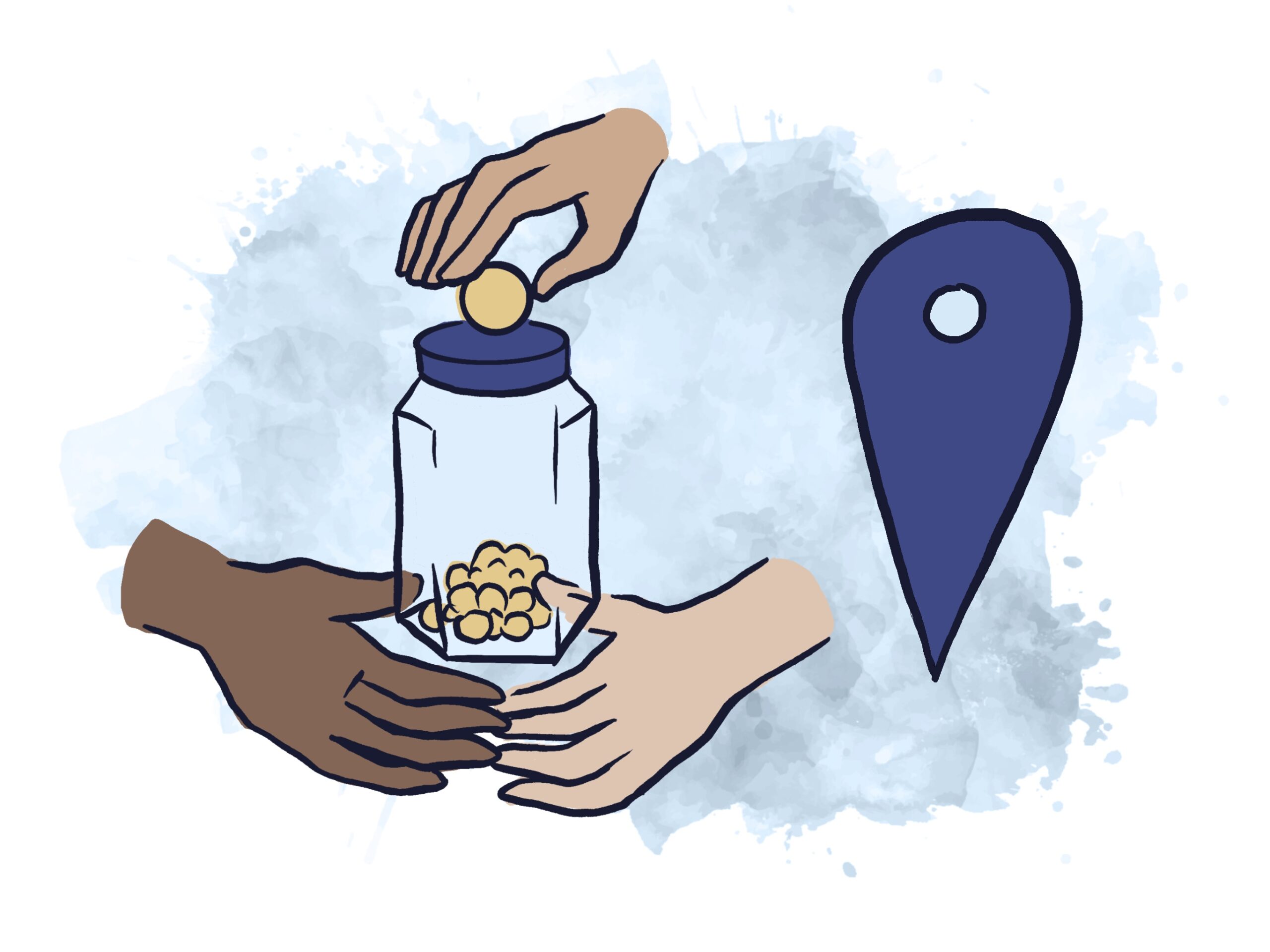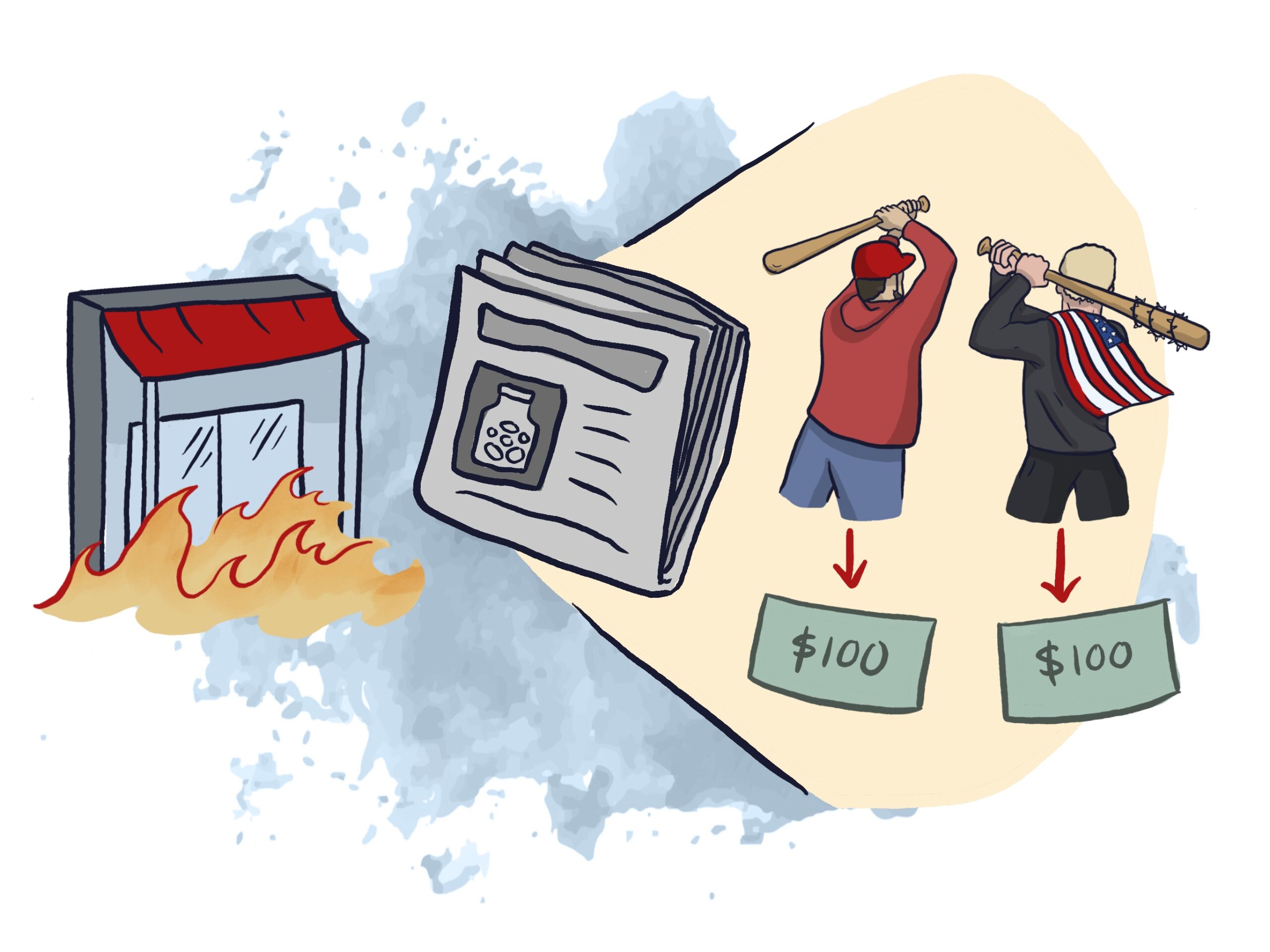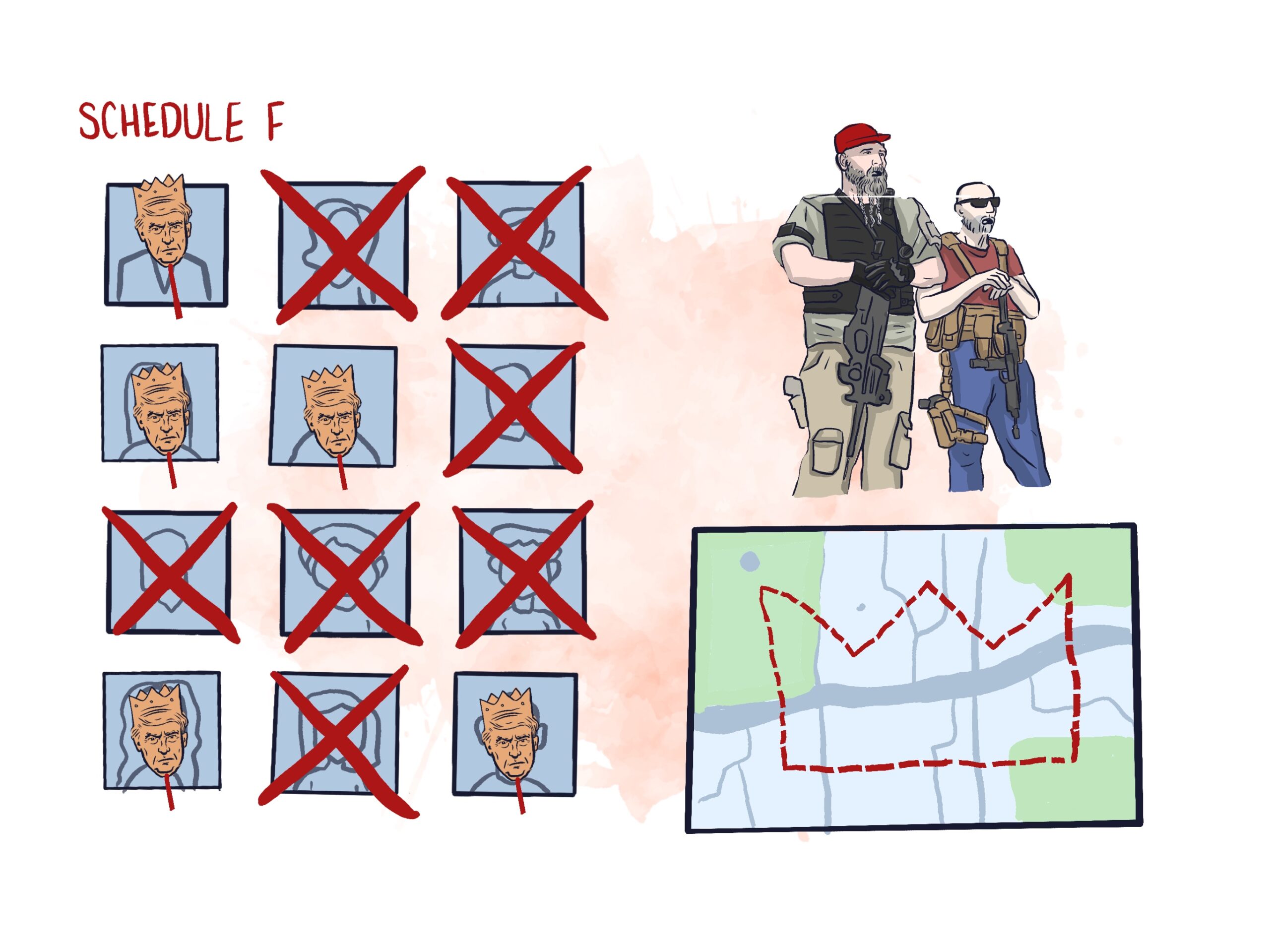You decide it’s best to stay small. This allows you to prioritize your work locally. Plus, you see many friends burning out by constantly “doing more” to halt the ongoing Trump pronouncements. You resist that tendency. You do your part and feel good about it.


Even still, your part feels huge — especially as crises mount. A climate-change-fueled fire rages through town. A right-wing militia march ends up burning local businesses. Your funds are constantly depleted, and you’re barely able to keep up with the need. But the work you’re doing is good — and while you wish you had more resources, nobody else is stepping in at the speed that your group is. Without much to lose, you decide to be more explicit about your funding politics and announce a new fundraising challenge. For every right-wing marcher last week, you’ll raise $100 to donate to local progressive causes. Two members of your funding circle quit in protest, feeling it’s too anti-Trump. But you raise twice that amount by the end of the next day.
Over the next year, you see small political changes around you. But it feels like barely a dent amidst the national scene. Despite lower poll numbers, Trump continues filling the government with his loyalists. The courts eventually approve his Schedule F reclassification — 50,000 government workers are now being systematically replaced by Trump loyalists. Bureaucratic fights rage across many institutions. Trump installs judges across the country who gerrymander election maps in multiple states to give Republicans long-term power. But your heart tears as you see the language of fear and violence growing: immigrant communities terrified by right-wing militia patrols, increased violence against peaceful protestors, attacks on emissions standards, and exaggerated calls for political arrests.

